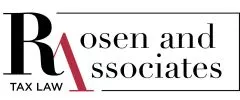The Digital Services Tax (DST) was initially proposed in 2020 and was implemented in 2024. This tax applies retroactively to any revenues earned as of January 1, 2022. The DST is a tax that applies to large businesses, domestic and foreign, whose revenue is "in-scope."
What is "In-Scope Revenue"
"In-scope" refers to revenue that is earned through digital services that depend upon the engagement of other users. There are currently four categories of in-scope revenue, namely, 1) online marketplace services revenue, 2) online advertising services revenue, 3) social media services revenue and 4) user data revenue. These categories distinguish between the types of revenue that is captured by the DST. It is important to note that the tax only applies to in-scope revenue that is related to users in Canada. The determination of whether in-scope revenue is associated with a user in Canada depends upon the type of in-scope revenue that is earned. For example, if the revenue is classified as social media services, the company in question will have to determine whether the revenue is associated with users in Canada. There is a formula that calculates the total percentage of the platform's users located in Canada.
Who does the Digital Services Tax Apply to?
The DST imposes a tax of 3% and only applies where a business meets two revenue thresholds. The first is the "Total Revenue Threshold" which applies to a subsequent calendar year where all sources of revenue total €750,000,000 or greater in the previous fiscal year. The second threshold is that of "Canadian In-Scope Revenue Threshold" which applies where the taxpayer earns more than $20,000,000 of Canadian in-scope revenue in the calendar year.
Although there is a threshold requirement for the DST to apply, in certain circumstances a taxpayer may be required to register for the DST even if they have not yet met the threshold for the tax to apply. For example, if the taxpayer earns Canadian digital services revenue and earned $10,000,000.00 or more in digital services revenue, they would be required to register for the DST even though that does not meet the threshold requirement for the tax to apply.
What to do if you think the DST Applies to your business
If you think that the DST may apply to your business, it is important to seek professional advice to ensure compliance. Consulting with a tax advisor or tax lawyer will help to provide clarity on the tax's applicability and help navigate the necessary reporting and payment procedures. Additionally, staying informed about any updates to tax regulations and maintaining detailed records will help to facilitate a smoother process in adhering to the DST requirements.
The content of this article is intended to provide a general guide to the subject matter. Specialist advice should be sought about your specific circumstances.



